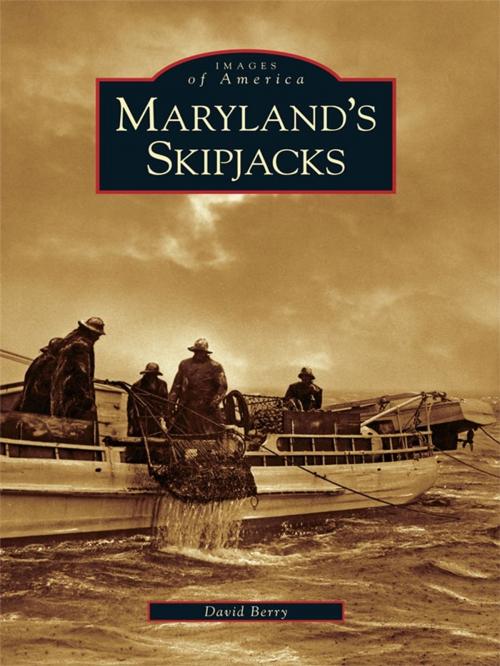Maryland's Skipjacks
Nonfiction, Reference & Language, Transportation, Ships & Shipbuilding, Pictorial, History, Art & Architecture, Photography, Pictorials| Author: | David A. Berry | ISBN: | 9781439635513 |
| Publisher: | Arcadia Publishing Inc. | Publication: | May 26, 2008 |
| Imprint: | Arcadia Publishing | Language: | English |
| Author: | David A. Berry |
| ISBN: | 9781439635513 |
| Publisher: | Arcadia Publishing Inc. |
| Publication: | May 26, 2008 |
| Imprint: | Arcadia Publishing |
| Language: | English |
Chesapeake is an Algonquian word meaning �great shellfish bay,� and for decades, the oyster was the undisputed king of Chesapeake Bay shellfish. Early settlers reported them to be as large as dinner plates, and the reefs or rocks in which they lived
were large enough to be hazards to navigation. In 1884, fifteen million bushels of oysters were harvested and shipped around the world. The skipjack was the perfect vessel for sailing into the Chesapeake Bay�s shallow waters and dredging for oysters, and each winter, hundreds of these wooden craft set out across the bay�s cold waters. The oyster population of the 21st century is a fraction of what it once was, and the skipjacks have disappeared along with them. No longer economically viable, the boats have been left to rot in the marshes along the bay. Only 25 boats are still operational, and fewer than five still dredge.
were large enough to be hazards to navigation. In 1884, fifteen million bushels of oysters were harvested and shipped around the world. The skipjack was the perfect vessel for sailing into the Chesapeake Bay�s shallow waters and dredging for oysters, and each winter, hundreds of these wooden craft set out across the bay�s cold waters. The oyster population of the 21st century is a fraction of what it once was, and the skipjacks have disappeared along with them. No longer economically viable, the boats have been left to rot in the marshes along the bay. Only 25 boats are still operational, and fewer than five still dredge.
Chesapeake is an Algonquian word meaning �great shellfish bay,� and for decades, the oyster was the undisputed king of Chesapeake Bay shellfish. Early settlers reported them to be as large as dinner plates, and the reefs or rocks in which they lived
were large enough to be hazards to navigation. In 1884, fifteen million bushels of oysters were harvested and shipped around the world. The skipjack was the perfect vessel for sailing into the Chesapeake Bay�s shallow waters and dredging for oysters, and each winter, hundreds of these wooden craft set out across the bay�s cold waters. The oyster population of the 21st century is a fraction of what it once was, and the skipjacks have disappeared along with them. No longer economically viable, the boats have been left to rot in the marshes along the bay. Only 25 boats are still operational, and fewer than five still dredge.
were large enough to be hazards to navigation. In 1884, fifteen million bushels of oysters were harvested and shipped around the world. The skipjack was the perfect vessel for sailing into the Chesapeake Bay�s shallow waters and dredging for oysters, and each winter, hundreds of these wooden craft set out across the bay�s cold waters. The oyster population of the 21st century is a fraction of what it once was, and the skipjacks have disappeared along with them. No longer economically viable, the boats have been left to rot in the marshes along the bay. Only 25 boats are still operational, and fewer than five still dredge.















